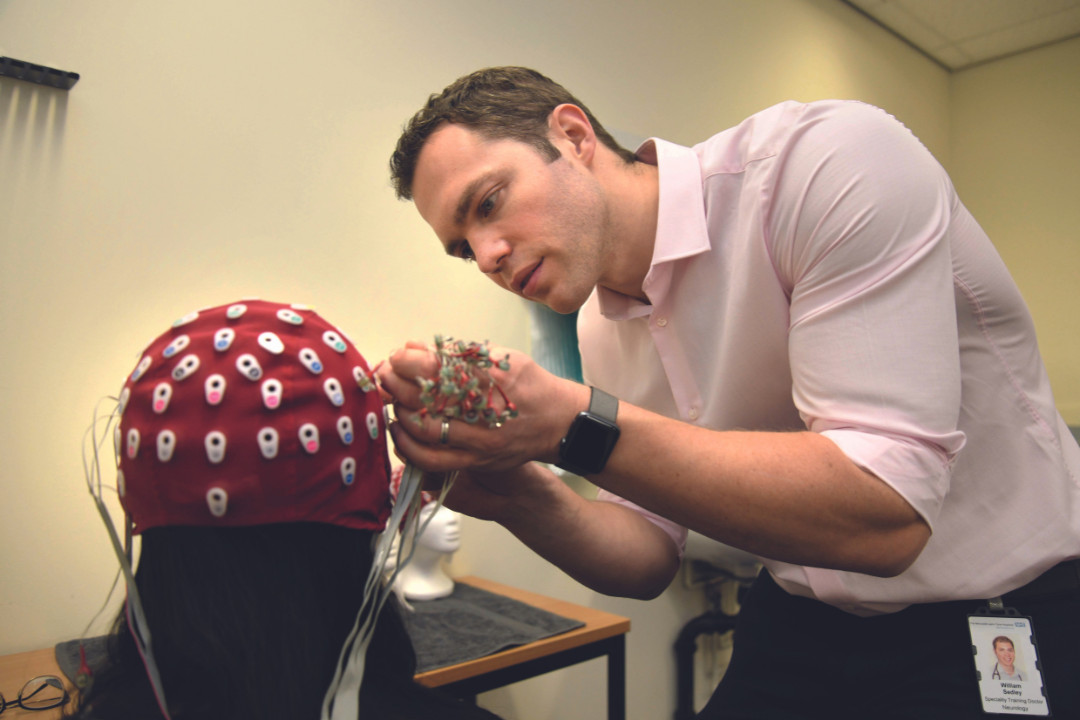Newcastle University

Dr Will Sedley works in Newcastle spending one day a week practicing as a consultant neurologist, and the rest conducting research aimed at understanding the processes in the brain that are linked to tinnitus.
This research involves volunteers with and without tinnitus, and uses a variety of recording methods, including electrical brain recordings and functional brain scans.
More about Will’s work
Will is particularly interested in how the brain uses prediction to help perceive the world around it, and how tinnitus first forms in the brain during its early stages.
Will works closely with a number of other researchers in Newcastle, and also in London and Iowa.
Investigating changes in the brain linked to tinnitus
Read about Will’s research projectWill’s approaches to hearing research
Two things motivate me strongly and persistently. One is the incredible unmet need for a clear understanding of the mechanisms of tinnitus in order to provide effective treatments to so many people who need them. The other is the length, breadth and richness of the brain’s perceptual systems, which we need to understand in order to understand tinnitus. Either one of these alone is more than enough motivation.
Quite honestly, it was by sheer chance that I ended up working in hearing rather than another sense such as vision. I just followed my interests in the brain, and perception in general, and took up the best opportunity available to me, which was to work with Prof. Tim Griffiths, who became my supervisor and mentor.
I want my research to benefit people living with tinnitus currently, and those who will develop it in future. Ultimately, this needs to lead to new or improved treatments, but for that to be achieved, we might need to first gain a clearer picture of the underlying processes we are trying to treat.
RNID funding, along with co-funding from the British Tinnitus Association, has allowed me to take on two PhD students to thoroughly explore two exciting avenues of research into tinnitus – either or both of which could further our understanding of the condition, and/or help lead to new treatments. The scientific gains will be important, as will be encouraging bright young minds into tinnitus research as an ongoing career focus.